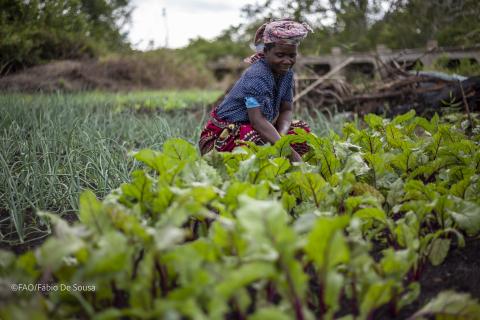Climate change and health: A draft resolution
This is a summary of the following report: World Health Organization (2024) Climate change and health – Draft resolution proposed by Barbados, Brazil, Ecuador, Fiji, Georgia, Kenya, Moldova, Monaco, Netherlands (kingdom of the), Panama, Peru, Philippines, Slovenia, United Arab Emirates and the United Kingdom of Great Britain and Northern Ireland. https://apps.who.int/gb/ebwha/pdf_files/WHA77/A77_ACONF7-en.pdf
In May 2024, the 77th World Health Assembly passed a Resolution on Climate Change and Health, emphasising the serious impact of climate change on global health and calling for urgent, integrated action to address the profound impacts of climate change on health and nutrition. Climate change is identified as a significant threat to public health, affecting well-being through extreme weather events, changing ecosystems, and driving up diseases.
The resolution highlights that extreme weather and climate change threaten food security, leading to malnutrition in all its forms. It recognises this is a complex issue that requires integrated approaches to address. It acknowledges that climate change exacerbates health inequalities, disproportionately affecting vulnerable populations, particularly women and girls. It stresses the need for a comprehensive approach to tackle these health challenges and address the root causes of climate-sensitive health issues.
The resolution calls for coordinated action to build sustainable and climate-resilient health systems. This includes integrating climate considerations into health policies and fostering collaboration across various sectors to address the interlinkages between the environment, the economy, health, nutrition, and sustainable development. It advocates for a "health-in-all-policies" approach, ensuring that climate adaptation and mitigation strategies include health and nutrition considerations. It also emphasises the need for international cooperation, financial support, and the sharing of knowledge and technologies to build climate-resilient health systems. The value of initiatives such as the COP27 Initiative on Climate Action and Nutrition in helping drive a global shift on climate and health action is acknowledged. By adopting these measures, the resolution aims to enhance the ability of health systems to respond to the nutritional and health challenges posed by climate change.
For more information on the 77th World Health Assembly, please visit https://www.who.int/news-room/events/detail/2024/05/27/default-calendar/climate-health-events-at-wha77
A note from the Field Exchange editors
What is the significance of a WHO Resolution?
The importance of a WHO resolution lies in its ability to set global health priorities and mobilise international action. Resolutions by WHO can guide national policies, direct funding, and stimulate research and innovation. By formalising commitments to address climate change and health, WHO resolutions can drive countries to integrate these issues into their public health strategies, ensuring a coordinated and effective response. This global alignment can help secure the necessary resources and political will to implement changes that protect and improve health in the context of climate change.


